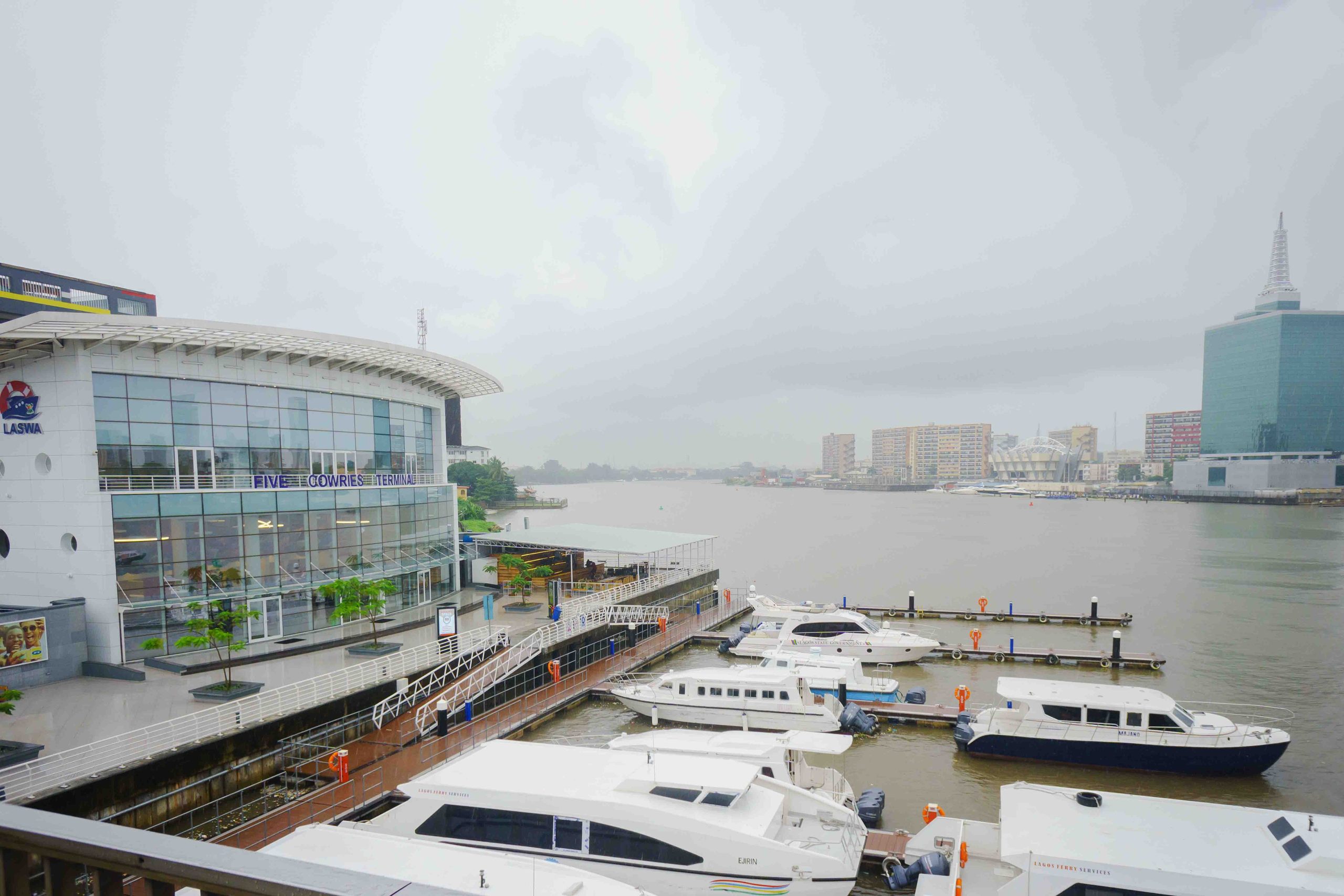

Project Overview
The goal of the intervention is to prepare a Full Business Case for water transportation in Lagos, which will be building on past studies such as CPCS’s study on “Private Sector Participation in an Integrated Transport System in Lagos, Nigeria” and lead to the establishment of a viable and sustainable water transportation system in Lagos. The Full Business Case is expected to produce a plan for implementable improvements that cover the following:
– Service quality performance of water transport (safety, reliability, punctuality, comfort, information)
– Fleet quality and conditions
– Business model and contractual framework
– Financial model and better access to finance for operators
– Capacity development for relevant actors and stakeholders in water transport
– Movement of cargo on water from port to destination
– Better linkages between other modes of transport and water transport.
Overall the intervention aims to impact the public transport sector by expanding water-based transportation, streamlining what already exists, encourage more ridership, and making a business case for water transportation.
Sectors
- Transport & Mobility
US$140,000,000
Funding Goal
Nigeria
Country
Africa
Region
Objectives
The overall objective of the intervention in the water transport sector is to achieve the Sustainable Development Goal Target 11.2 which is “to provide access to safe, affordable, accessible and sustainable transport systems for all, improving road safety, notably by expanding public transport, with special attention to the needs of those in vulnerable situations, women, children, persons with disabilities and older persons”.
1. The programme focuses on the preparation of Outline Business Case (OBC) that should identify the prioritised routes to be licensed and terminals to be concessioned and present them as a series of transactions for the LASG to approve for implementation.
2. The preparation of the Full Business Case (FBC) that will determine the viability of the projects, and if not viable, the necessary financial support that may be required from LASG for sustainability of service delivery. The FBC should lead to the commencement of the two stage procurement process to attract private sector bidders to the transaction. This process will demonstrate to LASG that FCN is pushing to assist LASWA in issuing licences and concessions;
3. The programme focuses resources on examining the 10 priority routes recommended by LASWA, prioritising the routes into a two phase licensing and concession process commencing with for four routes and two terminals as phase 1 of the PSP process;
4. The programme recognises the importance of freight transport by designating at least one of the two terminals as a freight terminal for concession.
Progress Tracker
Phases
-
Phase 1
Preparation of the following documents for tender for the selection licensee and concessionaire
a. Information memorandum,
b. Invitation of the Expression of Interest (EoI)
c. Develop the Bidding Criteria
d. Request for Proposal (RfP) -
Phase 2
Procurement
a. Investor roadshow
b. EoI advertisement
c. review of EOI and selection of the shortlisted bidders
d. Issue RfP
e. Review RfP and Select the preferred bidder
f. Notification of the Preferred Bidder
g. Appointment, Negotiation, Signing of Agreement with the Licensee and Concessionaire -
Phase 3
Financial Closure
Await notification from investors on financial closure -
Phase 4
Construction of boats and construction of two terminals
a. potential capital subsidy from LASG to purchase boats, issue of construction to commission
b. LASG Commence land preparation for Ferry Terminal
Current Stage
Feasibility Assessment Stage
Timeline
The aim is to have appointment, negotiation, signing of agreement with the Licensee and Concessionaires by February 2022 for the four priority routes.
Project Milestones
The Lagos State Waterways Authority and Lagos State PPP office approved the Outline Business Case early in 2021. The Full Business Case has been submitted and has also been approved by the Lagos State Governor in June 202. Therefore preparation of tender documents is ongoing.
ESG Impact
- Promote a better working relationship between Lagos State Waterways Authority and Nigerian Inland Waterways Authority, who have agreed to collaborate in the implementation of laws and regulations on the Lagos inland waterways. Both parties now have joint responsibility to ensure safety, harmonise tariffs and monitor regulations on the Lagos inland waterways.
- Improving Lagos State Waterways Authority ’s capacity to regulate the sector through licensing.
- Infrastructure investments stimulates the economy through creation of jobs in the construction sector
- Job creation in the boat construction industry
- Integration and licensing of existing informal boat operators ensuring a positive social impact.
- The ferry terminals that will link with the BRT and train systems has the long-term potential to increase productivity and to increase economic growth by making the transportation system more efficient and reliable.
- The effective and attractive water public transport facilities are will moderate the potential impact of the unfettered use of personal motorised transport on the environment and the health of the population
Beneficiaries
The Project is expected to positively impact the mobility of the entire Lagos State, particularly people in the Lagos Metropolitan Area (LMA). The LMA accommodates over 80% of the over-twenty million residents. All the terminals of the priority routes are located in major cities of Lagos such as Ikoyi, Lekki, Apapa, Ikorodu and Ojo, which are all in the LMA.
Several informal settlements exist along waterway transportation routes in Lagos State. Most of these communities are traditional fishing villages, where the men are mostly fishermen, sand miners and/or loggers, while the women smoke and sell fish as well as engage in petty trade.
Secondary school pupils commonly take canoes to the city since most slums lack such educational facilities and they will also benefit from the project.
SDG Goals
Rationale
Water transportation can play a significant role in reducing road traffic congestion and air pollution if it is made more attractive, affordable and safer for people. The project specifically speaks to Sustainable Development Goal Target 11.2 – “to provide access to safe, affordable, accessible and sustainable transport systems for all, improving road safety, notably by expanding public transport, with special attention to the needs of those in vulnerable situations, women, children, persons with disabilities and older persons”.
Tracks
Risks and Limitations
What are the key risks, constraints and dependencies related to the project?
A risk assessment with strategies has been done in the Full Business Case (I have been unable to upload this due to its size). Below I have mentioned a few risks, but it will be advised you review the Full Business Case.
A key risk of TODs is one of gentrification of the development. Within the TOD Standard and by extension the Lagos urban renewal guidelines, under development, this is addressed by the mix principle (plan for mixed uses, income and demographics) which requires TODs to measure and benchmark.
Backlash from Existing Stakeholders – Engaging existing operators in a dialogue and agreeing some compensation will be extremely helpful in managing the situation.
Revenues will be too low or costs will be too high – Ensuring safeguards are in place to ensure that the investors are abele are able to come into a structured sector that allows for private sector participants to thrive.
Forced eviction poses the biggest repetitional risk – While avoidance of displacement is the first priority, it may be unavoidable in some instances.
Risk mitigation and continuity
1. Backlash from Existing Informal boat operators – Engaging existing operators in a dialogue and agreeing some compensation will be extremely helpful in managing the situation. Integrating them into the formal system
2. Revenues may be too low or costs too high – Ensuring safeguards are in place to ensure that the investors are abele are able to come into a structured sector that allows for private sector participants to thrive.
Financial risk – The recent fall in Naira and rise in petrol cost has effected the financial viability and therefore Lagos State Government is considering a capital subsidy for purchasing the large ferries.
Financing
Funding Goal
US$140,000,000
Type of Investment
Equity; Debt
Financing Structure
Public Private Partnership
Secured Investment
Not certain yet.
Committed Government Funding
Yes, potentially. To be confirmed in the next 2-3 months.
Committed Private Funding
To be determined after the procurement process.
Support
Technical Support Required
The next steps are:
1. Preparation of the tender for the selection licensee and concessionaire
2. Preparation of the Invitation of the Expression of Interest (EoI) / Develop the Bidding Criteria
3. Invitation for the Submission of EoI
4. Preparation of the Invitation of the Request for Proposal (RfP)
5. Review of EoI and selection of the shortlisted bidders
6. Issue RfP
7. Review RfP and Select the preferred bidder
8. Notification of the Preferred Bidder
9. Appointment, Negotiation, Signing of Agreement with the Licensee and Concessionaire
Stakeholders
Governmental Buy-in
Lagos State Governors Office
LASG Office of SDG & Investment
Lagos State Waterways Authority
Lagos State Ministry Of Transport
Lagos Metropolitan Transport Authority
Lagos State Office of Public Private Partnership
Other Forms of Governmental Support
There is buy-in from Lagos State Government. They will coordinate the preparation of the tender and the Invitation of the Expression of Interest for the selection licensee and concessionaire. They will also review and shortlist the bidders. And finally appoint, and sign agreements with the licensee and concessionaire. There will also be continuous monitoring of the project and management of the waterways.
National Ministries Involved
Nigerian Inlands Waterways Authority
SubNational Ministries Involved
Lagos State Governors Office
LASG Office of SDG & Investment
Lagos State Waterways Authority
Lagos State Ministry Of Transport - Dr Fredrick Oladeinde
Lagos Metropolitan Transport Authority - Abimbola Akinajo
Lagos State Office of Public Private Partnership
Other Entities Involved
Future Cities Nigeria
UK FCDO
National Association of Tourist Boat Operators and Water Transporters
Informal boat operators
Licenses and Permits
Permits and Licenses will be issued once the routes and terminals have been concessioned.
Updates
Supporting Documents
No supporting documents included.
